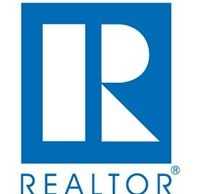WASHINGTON, DC – June 18, 2013 – (RealEstateRama) — Congress should consider redefining the new ability-to-repay requirements for Qualified Mortgages to avoid limiting affordable borrowing options for creditworthy buyers, said the National Association of Realtors® today in testimony before the House Financial Services Committee.
NAR President Gary Thomas implored Congress to revisit the definition of fees and points applied to affiliated mortgage lenders that require the counting of title company charges, the amount of homeowner’s insurance held in escrow, loan level price adjustments, and payments made by lenders in wholesale transactions towards the 3 percent cap in the QM rule. Thomas said the current calculation of fees and points discriminates against affiliated title companies, small and mid-size lenders, community banks and credit unions.
“Many of the mortgages available from affiliated businesses might not qualify as a QM without a higher interest rate,” said Thomas, broker-owner of Evergreen Realty, in Villa Park, Calif. “As the leading advocate for housing issues, NAR is committed to working with Congress to fix the unintended consequences of the ability-to-repay rule. To that end, NAR supports the bipartisan H.R. 1077/S.949, the Consumer Mortgage Choice Act, which would address the problematic fees and points definition and ensure broad consumer choice and access to safe, affordable mortgages.”
In his testimony, Thomas said that H.R. 1077 is essential to maintain competition and consumer choice in mortgage origination. Without this legislation, one-quarter to as much as one-half of loans currently being originated by affiliated lenders would likely not be eligible for the QM safe harbor, he said. Consequently, those loans would likely not be made or would be concentrated amongst the largest retail lenders, thereby limiting consumer choice.
Thomas said another area of concern about QM underwriting standards is the 43 percent debt-to-income limit on jumbo and non-government backed loans. He said it is particularly problematic in high cost areas where high-income borrowers are more likely to obtain jumbo financing. Thomas urged support for greater flexibility with regard to DTI limits so that credit would not be restrained in high cost communities.
Thomas also urged Congress to support regulatory changes to the proposed Qualified Residential Mortgage standards to substantially mirror the broad QM definition. NAR believes that this would prevent possible issues with creating another class of loans, such as those that are QM but not QRM, which could affect their overall marketability and cost.
“Congress and the Consumer Financial Protection Bureau have done important work to protect consumers from predatory lending products and processes that led to the mortgage crisis,” said Thomas. “Now is the time for additional steps to improve the QM and align the QRM with it so that consumers who have the ability to repay their loans will have access to affordable credit.”
The National Association of Realtors®, “The Voice for Real Estate,” is America’s largest trade association, representing 1 million members involved in all aspects of the residential and commercial real estate industries.
Media Contact:
Jenny Werwa / 202-383-1193




